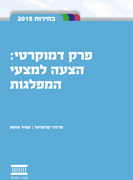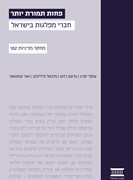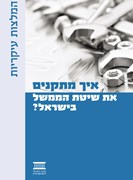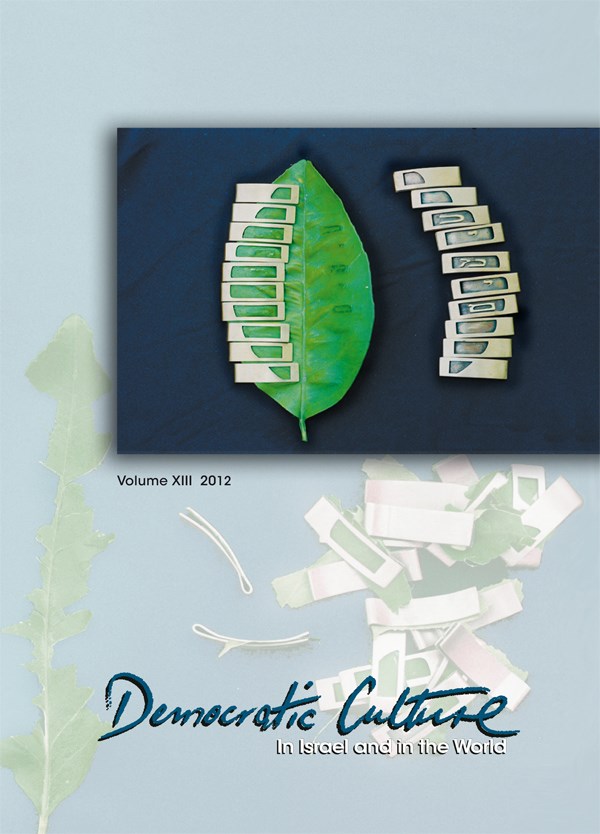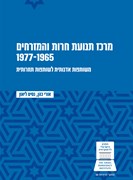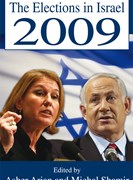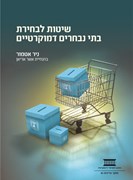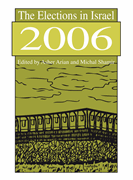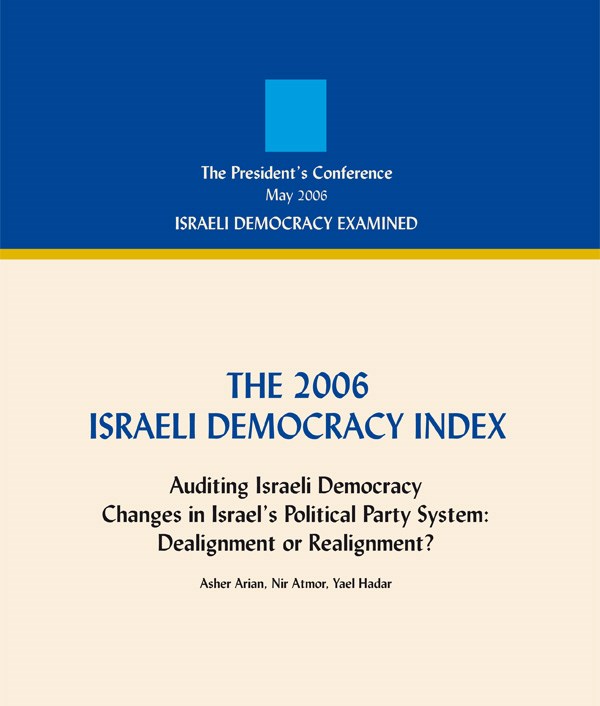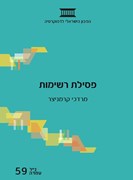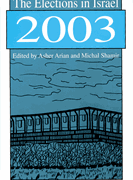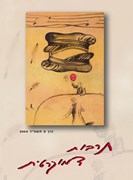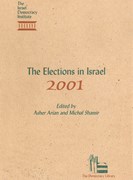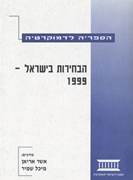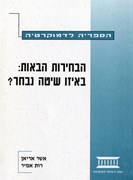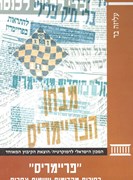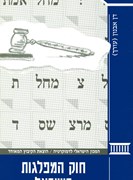

Publications Regarding political parties
Articles

Labor and Meretz Merge to Form “The Democrats”—Consequences and Implications
Written By: Dr. Assaf Shapira
The Labor and Meretz parties recently announced their intention to merge. Though these are relatively small parties today—Meretz has no representation at all in the current Knesset, and Labor has just four seats—this is still a significant event from a historical perspective and within the Zionist left.

Election Campaign Advances from the Public Purse
Written By: Dr. Assaf Shapira
The current campaign finance system in Israel incentivizes existing parties and creates a closed club where its difficult for new parties to compete. How can the system be reformed?
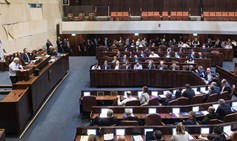
Who Does the Seat in Parliament Belong to The Party Faction or its Individual Member?
Written By: Dr. Assaf Shapira, Avital Friedman
Israel has a closed electoral system, so that on election day, the country’s citizens do not vote for individual representatives, but rather-for a list, which subsequently evolves into a faction in the Knesset. What does that mean in terms of balancing the power between the party and individual parliament members?
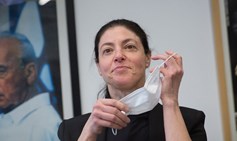
The Labor Party Primary Elections
Written By: Prof. Ofer Kenig
Labor was the only political party to elect its chair and candidates for the Knesset in primary elections consecutively since 1992 – including in the 2021 election. While its membership is dropping, this is consistent with ongoing trends in most Western democracies.
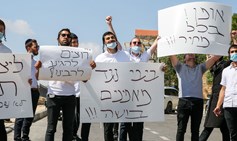
Haredim Lose Faith in their Political Parties
Written By: Dr. Gilad Malach
Ultra-Orthodox communities have been very critical of their political leaders for not advocating vigorously enough on their behalf at the beginning of the COVID crisis. Now, the ultra-Orthodox parties are at the forefront of the contentious demand to permit mass travel to Uman.
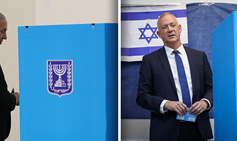
Israelis Believe Netanyahu's Investigations Will have the Greatest Impact on the Vote
Written By: Prof. Tamar Hermann, Dr. Or Anabi
January's Israeli Voice Index found 32% of Israelis believe Netanyahu's investigations will be the issue with the greatest impact on voters in the upcoming Knesset elections.

Wanted: Fiscally Responsible Political Parties
Written By: Dr. Assaf Shapira
Considering Israel is facing the third national elections in less than a year, isn't it reasonable to expect the political parties, whose campaigns are publicly funded, to act in a fiscally responsible manner?
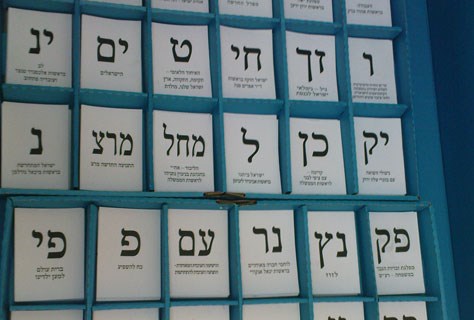
Where Have the Parties Gone?
Written By: Yohanan Plesner
Political parties no longer fulfill the goals for which they were intended, rather they have become technical structures that are focused on the ranking of the candidates on their Knesset lists.
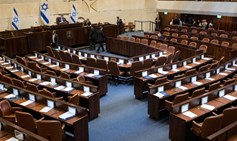
What Will the 23rd Knesset Look Like?
Written By: Prof. Ofer Kenig
New record low of number of lists; Left-Center shrinks from eight lists in 2013 to three today; women’s’ representation continues to dither – less than 30 women MKs are expected
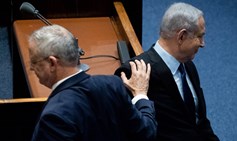
Can a Minority Government End the Deadlock in Israel?
Written By: Dr. Assaf Shapira
Assaf Shapira argues that if the choice is between a minority government and another round of elections, the former is the better option.
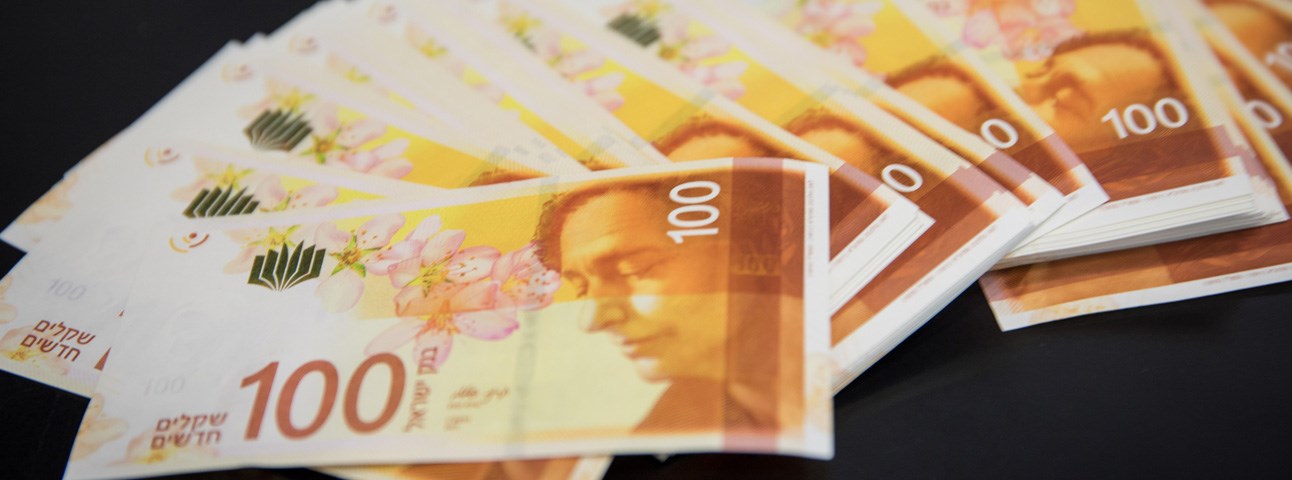
The Absurdity of Campaign Financing in Israel
Written By: Dr. Assaf Shapira
Why should parties be allowed to use state funding for ongoing expenses to cover the debts accrued during political campaigns?
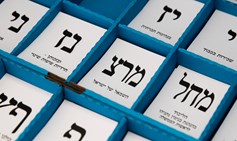
Exclusive Pre-Elections Survey
Written By: Prof. Tamar Hermann, Dr. Or Anabi
Exclusive Pre-Elections survey by the Guttman Center at the Israel Democracy Institute finds that half of Israelis find it harder than in the past to decide whom to vote for; 25% base their choice on the party’s positions on socioeconomic issues and 18% on who heads the party; 27% do not trust the integrity of the Knesset elections

Special Elections Survey
Written By: Prof. Tamar Hermann, Dr. Or Anabi
The Jewish public is divided over the question whether the prime minister should resign if indicted by the Attorney General, pending a hearing; 52% of the Jewish public believes that Israelis living abroad should also have the right to vote
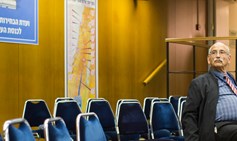
Has The Era of the Primaries Come to an End?
Written By: Prof. Ofer Kenig
Democracy is at risk when the responsiveness between the public and its elected representatives is severed. Without accountability, political extremism and populism will become more prevalent.
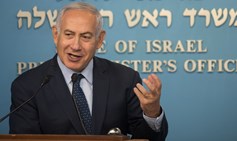
The Illusion of Political Stability
Written By: Prof. Ofer Kenig
Despite a solid decade with the same prime minister, other cabinet posts have switched hands at alarming rates.
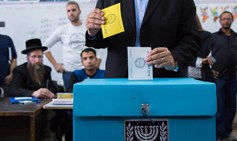
Israeli Politics Fractured: The System Needs Fixing
Written By: Prof. Gideon Rahat
It is commonly accepted that in order to defeat Netanyahu, the political parties in the center and on the Left must unite and present a single and clear alternative. However, under the current system, this claim is simply not true.
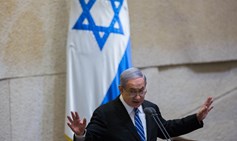
Jerusalem Report: Welcome to 21st Century Politics
Written By: Elli Wohlgelernter
Poorly funded and under threat from personalization and social media, political parties are in decline.

Israel Exemplifies Rise of Personalized Politics
Written By: Prof. Gideon Rahat
Donald Trump’s surprise win seems to illustrate the awesome power of the Internet-savvy individual in politics.
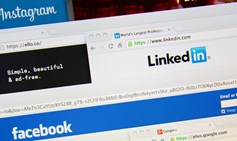
The Future of Israel’s Political Parties is on Facebook
Written By: Yohanan Plesner
Harnessing the power of readily available technological tools to promote political engagement and revitalize intra-party democratic practices is essential for strengthening party institutions and restoring the public’s faith in government.

The Trump Phenomenon: Israeli Politics in the 'Age of Me'
Written By: Prof. Gideon Rahat
Love him or hate him, Donald Trump’s once unthinkable ascension became a reality earlier this month, following a largely drama-free roll call vote on the Republican National Convention floor. Trump is a prime example of a candidate whose vision and ideas are not a direct reflection of his party's values and policies, and who, in many ways, battled his way to the top of the party. His nomination is just one example of a current trend toward political personalization, a process in which the influence of individual leaders in the political process has increased, as the centrality of the political group declines.

Are Open Primaries the Answer?
Written By: Prof. Ofer Kenig
The volatile Israeli party system, together with several recent political developments, lately brought the idea of holding open leadership primaries to Israel. However, when considering the adoption of open primaries, one must also take into account their potential challenges and dangers.

IDI Scholars in Favor of Bill that would Increase Funding for Parties that Hold Primaries to Select their MKs
"The law in Israel has a double-standard and discriminates against parties with democratic systems that enable the wider public to take an active role in politics"

A Democratic or Republican Candidate?
Peace Index: Israelis weigh in on which candidate is better for the Jewish State; Survey examines perceptions of Jerusalem as a divided city.

What Just Happened? The 2016 U.S. Elections
Written By: Prof. Ofer Kenig
On Monday, February 1, 2016, the long and complex process in which the two major American parties choose their candidates for president began in Iowa. One of those two candidates will be the 45th President of the United States. What exactly are the presidential primaries? What makes them so long and complicated? What is their timetable and who, for now, are the main candidates?

Flash in the Pan Parties in Israel
Written By: Dr. Assaf Shapira
"Flash in the pan" parties suddenly spring up, run for Knesset with varying degrees of success, and disappear from the political map soon after. This article discusses this phenomenon in Israel in the past and in the context of the 2015 elections.
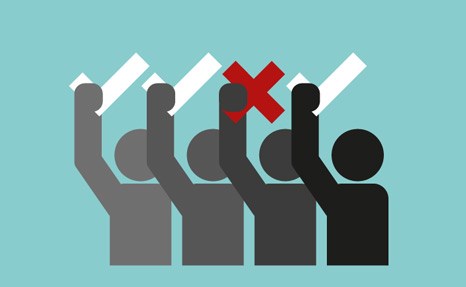
The Intra-Party Democracy Index 2015
Written By: Prof. Gideon Rahat, Dr. Assaf Shapira
The findings of the Party Democracy Index, a tool designed to evaluate the level of democracy within political parties, which was designed by IDI's political reform research team. The findings have been released in advance of the 2015 Knesset elections.

Israel's Central Elections Committee: Political Cabal or Independent Agency?
Written By: Dr. Dana Blander
IDI Researcher Dr. Dana Blander discusses the role of Israel's Central Election Committee and asserts that change is needed in its structure, composition, and working methods.
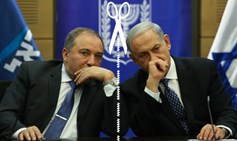
The Yisrael Beiteinu–Likud Split: Background and Consequences
Written By: Dr. Assaf Shapira
Following the announcement of the dissolution of the partnership between Yisrael Beiteinu and the Likud, IDI researcher Assaf Shapira explores the implications of Knesset faction splits.
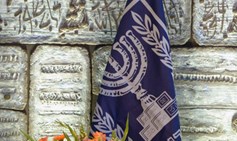
The Israeli Presidency: Unnecessary Institution or Vital Symbol?
Written By: Dr. Dana Blander
As the 2014 presidential election draws near, once again there have been calls to do away with the institution of the presidency. Is the President of Israel an unnecessary position or a vital symbol? IDI researcher Dr. Dana Blander analyzes the two sides of this question.

Remembering Ariel Sharon (1928–2014)
Written By: Prof. Ofer Kenig
Dr. Ofer Kenig presents some of the milestones in the career of Ariel Sharon, the 11th Prime Minister of the State of Israel.
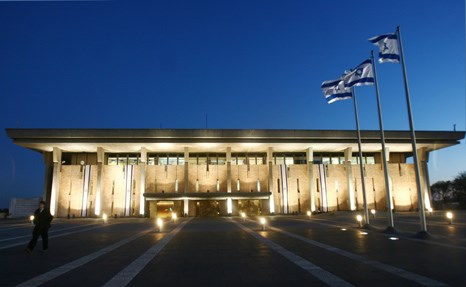
The Governance Bill: A Status Update
Written By: Prof. Gideon Rahat
An update on the status of the proposed Governance Bill and how it aligns with the recommendations of IDI researchers, which was written after IDI experts participated in Knesset committee deliberations.
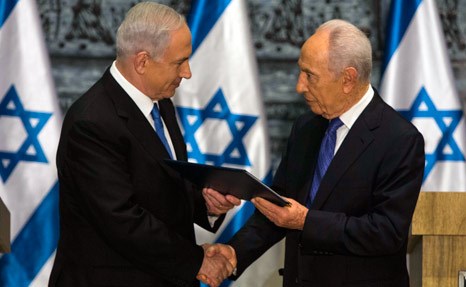
Coalition Building in Israel: A Guide for the Perplexed
Written By: Prof. Ofer Kenig
In an article specially written for the IDI website, Dr. Ofer Kenig explains the basic principles of the process of coalition building, sharing facts, figures, and comparative data.
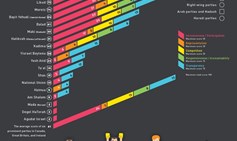
The Party Democracy Index 2013
Written By: Prof. Gideon Rahat, Dr. Assaf Shapira, Michael Philippov
The findings of the Party Democracy Index, a new tool designed to evaluate the level of democracy within political parties, which was designed by IDI's political reform research team and released in advance of the 2013 Knesset elections.

The 2015 Knesset Elections: Facts and Figures
The statistics and graphs below pertain to the upcoming Knesset elections, which will be held on March 17, 2015. The data were collected and analyzed by Dr. Ofer Kenig of IDI's Political Reform project.
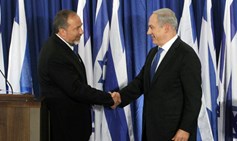
Do We Really Want Big-Tent Parties?
Written By: Yehoshua Oz
In an op-ed published in The Jerusalem Post, IDI Director of International Communications Yehoshua Oz argues that a central group of larger parties is needed instead of the small parties that have inundated Israeli politics over the last two decades, in order to provide stability and avoid the need for coalitions of many small parties, each with their own special-interest demands.

The Likud-Beiteinu Merger: A Harbinger of Political Change
Written By: Dr. Arye Carmon
In an op-ed originally published in Yedioth Ahronoth, IDI Former President and Founder Dr. Arye Carmon welcomes the merger of the Likud and Yisrael Beiteinu, which he sees as an important milestone in a long, necessary process of repairing Israel's political system.

The Emergence of New Political Parties in Israel
Written By: Parliament Staff
A survey of the creation of new political parties in Israel, from the state's founding through 1992, which was originally published in Hebrew in Parliament, IDI's online journal.

Israel's Political Parties: Strengthen the Party, not the Cult of Personality
Written By: Prof. Gideon Rahat
Prof. Gideon Rahat, Director of Research of IDI's Political Reform project, recommends several changes that can help strengthen Israel's political parties and restore them to reasonable performance.

The Primary System in Israel: A Balance Sheet
Written By: Prof. Ofer Kenig
The frequent criticism of the Israeli primary system by politicians, the media, and academics often creates the impression that the system should be retired and replaced by a new one. In the article below, which was written prior to the Kadima primaries in March 2012, IDI Researcher Dr. Ofer Kenig surveys the arguments against primaries, analyzes the validity of the criticisms, and explores ways of addressing the weak points of the system.

Yair Lapid in a Splinter Party Arena
Written By: Dr. Arye Carmon
Israeli journalist Yair Lapid's announced intention to enter politics sparked both excitement and speculation as to whether he planned to start his own party or to join one of the existing parties. While IDI Former President and Founder Dr. Arye Carmon applauds the entrance of talented, committed people into politics, he stresses the need for them to join one of the large, existing parties in order to stabilize the political system.

The Israeli Voters Have Spoken
A survey conducted in April 2011 by IDI’s Guttman Center and the Dahaf Institute on behalf of the Save Israeli Democracy NGO reveals that Israeli voters are fed up with political parties and Knesset members, but are willing to support initiatives that will change the situation.

The Limits of Party and Coalition Discipline
Written By: Reuven Rivlin
How much parliamentary independence should Knesset members have? To what extent must they toe their party's line? At a time when party discipline and coalitional discipline play a decisive role in determining the fate of Israeli policy and proposed legislation, MK Reuven (Ruby) Rivlin, Speaker of the Knesset, calls on parties to allow Knesset members to remain true to their conscience and to their role as representatives of the people.

Who Presides over the Knesset? On the Role of the Speaker of the Knesset
Written By: Dr. Dana Blander
IDI Researcher Dr. Dana Blander examines the statutory and customary roles of the Speaker of the Knesset and considers whether this is a symbolic job or one that has real influence on the operations of the Knesset. In addition, she compares the powers and functions of the Knesset Speaker with the corresponding roles in Great Britain and Australia.

Intra-Party Politics
Written By: Prof. Gideon Rahat
Party primaries, though a vital component of the Israeli electoral system, receive little attention from the media and the voting public. In an interview originally published prior to the Israeli general elections in 2006, Dr. Gideon Rahat of the Political Science Department at the Hebrew University in Jerusalem, today a Senior Researcher at IDI, discusses the candidate selection process within Israel's political parties and explores the pros and cons of local and international models.
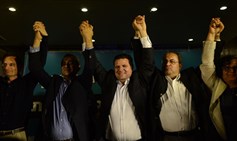
Arab Politics in Israel: Where are they Headed?
Written By: Dr. Arik Rudnitzky
The real story of the April 2019 elections took place outside the polling booth. In the Arab sector, the Movement to Boycott the Knesset Elections, a grassroots group based on Arab young adults and university students, working on the social networks with a shoestring budget, conducted an effective campaign with a simple and catchy slogan: “Boycott: The People’s Will.” This message stood in utter contradiction to the motto of the elections in 2015: “The Joint List: The People’s Will.”

Out of Sight: How Do Israeli Parties Perform on Social Networks?
Yesh Atid, Zionist Camp and Meretz have the strongest online presence, while the Joint List and Yisrael Beiteinu lag behind.

